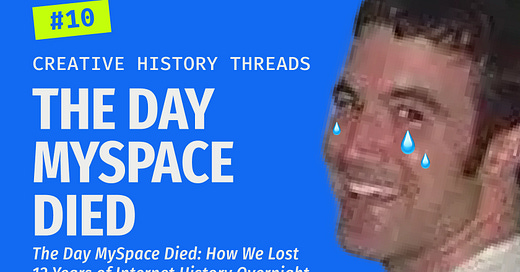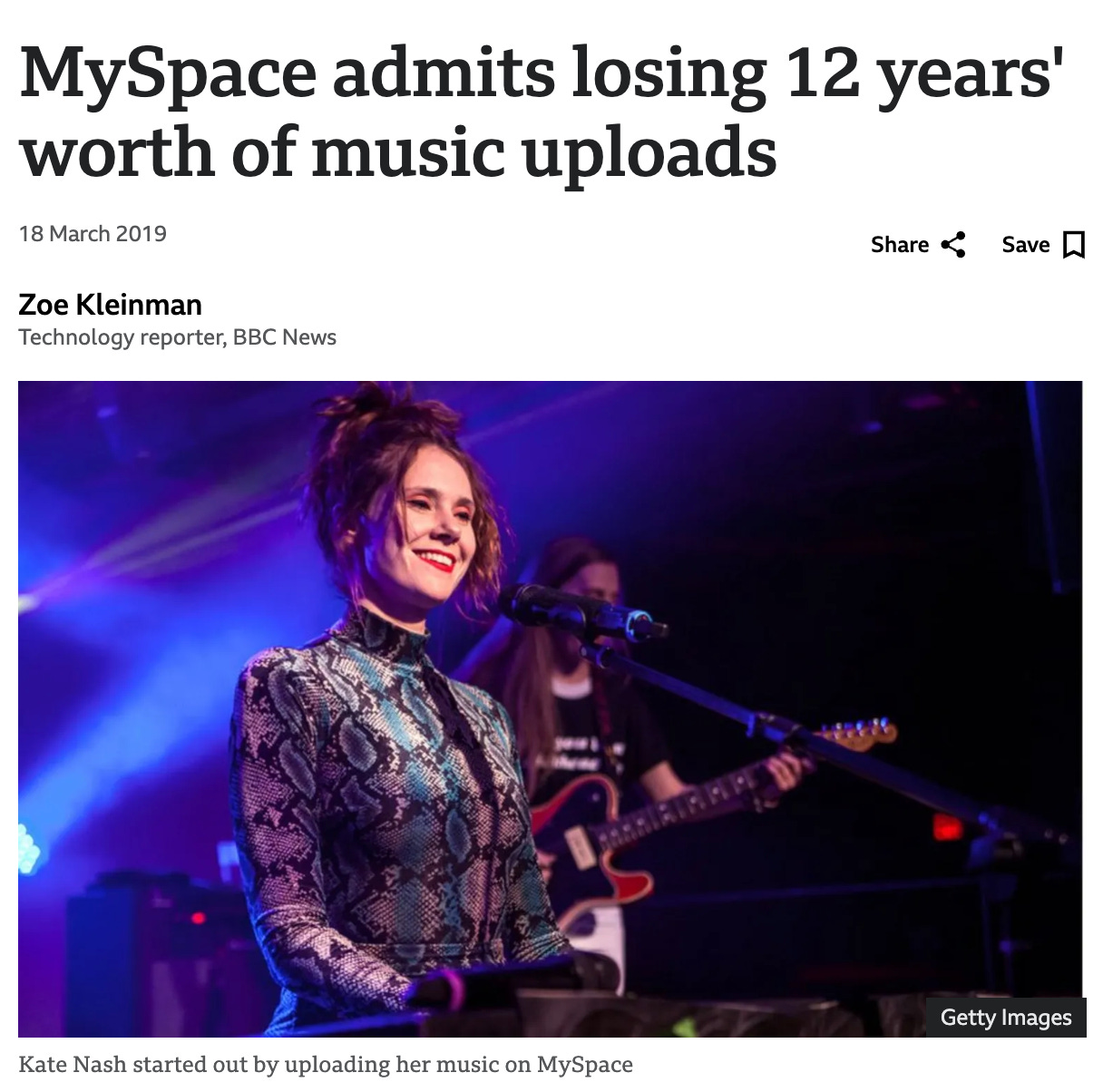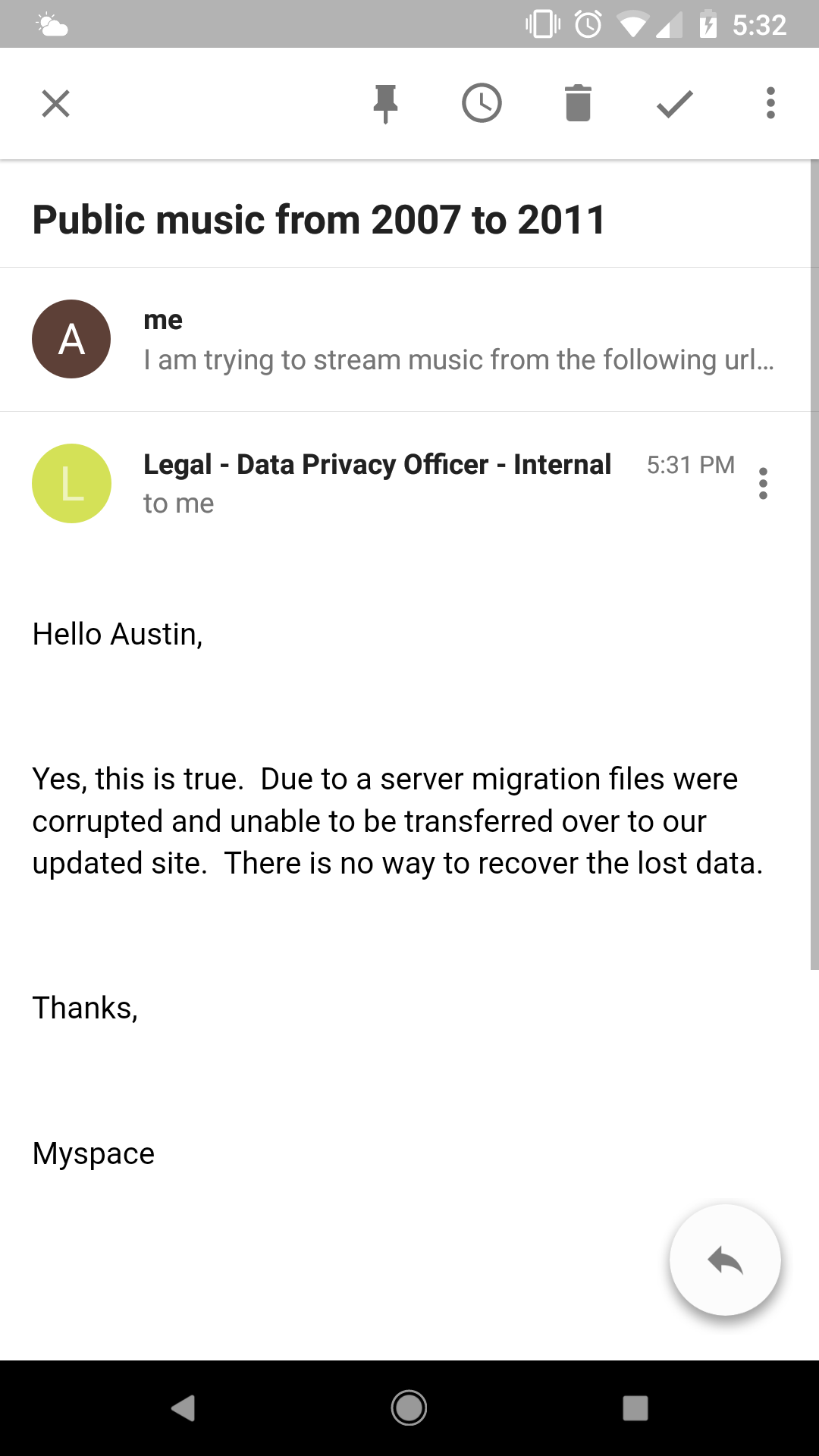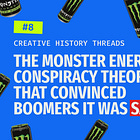Boy Oh Boy, now this makes me feel old.
MySpace was the wild west of early social media - a chaotic, glitter-covered corner of the internet where your profile song said more about you than your bio, everyone learned HTML without realizing it, and Tom was your first (and most loyal) digital friend. It was part blog, part music venue, part teenage diary… and 100% a personality test based on your Top 8. I was lucky enough to be a teenager during that era. I wasn’t emo, though—I was scene. Kind of like emo, but with more neon and a smile.
Server Migration Issue
In early 2019, MySpace quietly confirmed something that shook a chunk of the internet’s memory: it had permanently lost over 50 million songs, 12 years of photos, blog posts, playlists, videos, and more. Just like that, an entire era of digital culture vanished. No backup. No archive. Gone.
The incident was brushed off as a server migration issue. According to MySpace, a botched reformatting effort had resulted in corrupted files from 2003 to 2015. But for many people, this wasn’t just some outdated data - it was their creative origin story.
What We Lost
MySpace wasn’t just a social media platform; it was the launchpad for a generation of musicians, writers, coders, and creators. Before Spotify, SoundCloud, or Instagram, there was MySpace - where indie bands built fanbases, teens coded their own HTML layouts, and bloggers shared their lives in ways that laid the groundwork for what we now know as “content.”
When the platform went through multiple rebrands and ownership changes, it faded from mainstream use. But its archives held a unique kind of digital nostalgia - early demos from then-unknown artists like Arctic Monkeys, Lily Allen, and even the first solo tracks from Frank Ocean. Many of those files were never stored anywhere else.
The loss wasn’t just emotional - it was cultural. A massive chunk of early 2000s internet history was erased with no chance of recovery.
Why It Happened
The official statement blamed a server migration error - a fairly standard technical operation, if handled properly. But it raised questions:
Why wasn’t there a proper backup?
How could a platform once valued at over $500 million fail to preserve its most valuable asset—user data?
Why did it take eight years to notice the problem?
Critics pointed out that MySpace had already been in steep decline by the time of the data loss. It seemed more like a shrug than a scandal - a side effect of the disposable way we treat online platforms.
Scepticism
Not everyone bought the “oops, we lost everything” explanation. When MySpace claimed a server migration error had permanently erased more than a decade’s worth of user content, some experts raised eyebrows.
After all, losing everything from 2003 to 2015 - music, photos, blogs, videos - seemed a little too convenient. There were no backups? No failsafes? No warning? For a platform once valued at over half a billion dollars, that level of technical negligence felt… suspicious.
Some began to wonder if this “accident” was actually a quiet cost-cutting move. Maintaining aging servers filled with terabytes of old, inactive data isn’t cheap. MySpace had been struggling for relevance for years, and deleting it all might have been the easiest way to wipe the slate clean - both technically and financially.
The Larger Problem
MySpace’s loss is a warning: our digital memories are fragile. As much as we assume the internet “remembers everything,” the truth is, digital content can vanish overnight if no one’s watching. Platforms disappear, servers go down, formats change, and companies fold.
The MySpace wipe-out is a reminder that the early internet was never built to last - and that we’re still figuring out how to preserve the culture we create online.
A Bittersweet Legacy
Despite the loss, MySpace’s cultural imprint lives on in spirit. It taught a generation of kids how to code, curate, and create their online selves. It gave birth to musical movements and made space for weird, DIY creativity in a way few platforms ever have.
And even though its digital archive is mostly gone, one thing is certain:
MySpace helped build the internet as we know it - right before it accidentally deleted its own history.
Cheers,
Marta

















